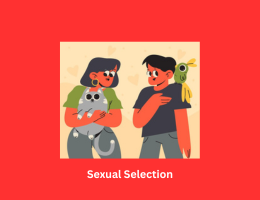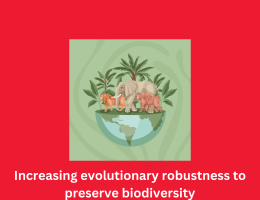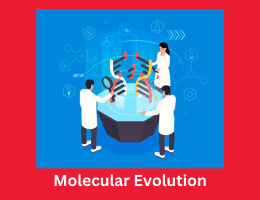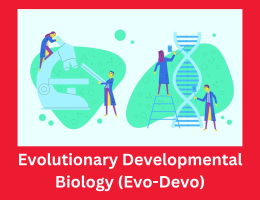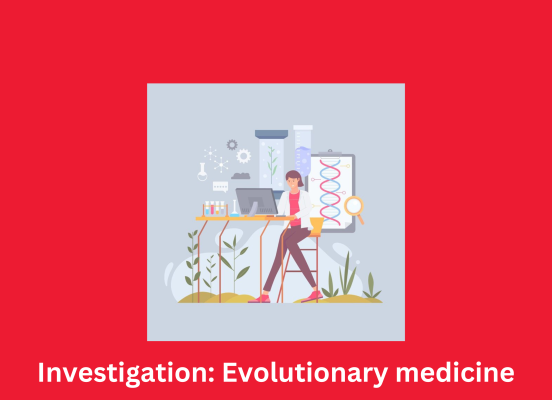
Investigation: Evolutionary medicine
- By admin --
- Monday, 08 Apr, 2024
Numerous factors impact and mold our health, each personally and collectively. Our surroundings, hereditary and somatic genetic variations, our various exposure to infections, our food and lifestyle picks, our social structures, and our cultural innovations are a number of those affects.
These factors all interact with one another and are never static. Disease risks now may be influenced with the aid of human genetic diversifications to earlier environments, sickness loads, and cultural practices, particularly if any of the underlying environmental, illness, or cultural elements have altered over time. In the intervening time, human infections and parasites are continually evolving to healthy our biology and cultural traits, together with new medications, medical improvements, and infrastructural enhancements (like mosquito nets and water treatment plants). It's also not unusual to look an individual's cancer improvement as an evolutionary method (Merlo et al., 2006).
Naturally, there is a lot of research at the evolution of resistance to antibiotics in bacterial pathogens (Bakkeren et al., 2020), resistance to antivirals in viruses (Irwin et al., 2016), resistance to antifungals in fungi (Robbins et al., 2017), and resistance to different antimicrobials in parasites (e.G., Haldar et al., 2018). However, other crucial aspects of the dynamics of human infectious sicknesses consist of the evolutionary methods of mutation, genetic go with the flow, and gene go with the flow (such as that mediated via the mobility and behavior of human, animal, and insect vectors), in addition to the interplay between those forces and human immunity.
In instances when numerous pills are being handled, how does resistance expand? What are the affects of interactions with co-taking place pathogens? (McLeod and Gandon, 2021). In light of this facts, what are the exceptional methods to deal with patients (Morley et al., 2020)? What characteristics of currently evolved medicinal drugs are most applicable for these evolutionary processes? In addition to resistance evolution, what outcomes do other evolutionary forces having on our diseases have on human health (D'Aeth, 2021; Huddleston et al., 2020)?
But it is vital to recall that evolutionary processes by no means prevent. In other words, every of our particular genomes represents a complex records of genetic waft and previous variation across a huge range of ages. This means that there are regularly complex relationships between the evolutionary ecology of the past, the environmental changes that followed, and contemporary health. Consider the subject of eating: some contend that cutting-edge humans ought to adhere to a "paleo weight loss plan" (which emphasizes consuming meat, fish, fruit, and vegetables even as heading off grains, dairy merchandise, and processed ingredients) so that you can keep maximum fitness. The paleo food plan enterprise's absolutism is refuted by using a wealth of medical statistics demonstrating continuing organic adaptations in human beings in reaction to societal shifts introduced about by using post-"paleo" diets (Chang and Nowell, 2016; Zuk, 2013).
On the alternative hand, genetic versions that decreased the danger or severity of 1 infection and might have previously been concern to nice choice may additionally enhance the chance of different diseases (Williams, 1957; Byars et al., 2017). Variants within the human gene APOL1 provide resistance in opposition to infection with the aid of Trypanosoma brucei parasites, which reason African sound asleep sickness, as an example of a 'pleiotropic trade-off'. Strong warning signs of previous positive choice were linked to those APOL1 mutations in a few African companies. But African Americans also have a better threat of renal contamination because of the identical genes (Cooper et al., 2017; Genovese et al., 2010).
Scientists can determine whether evolutionary mismatch, pleiotropic exchange-off, or both are at play when a genetic signature of tremendous selection for an allele (or set of alleles) connected to an extended chance of a ailment is located (see, as an instance, Clemente et al., 2014 and Richard et al., 2020). When taking into consideration the converting environmental putting (Byars et al., 2017; Zhang and Gems, 2021) or the epidemiology and molecular processes of related problems, our know-how of disease biology, possible healing avenues, and intervention strategies might increase in a compounding manner.
In idea, international involvement in technology and huge distribution of its blessings can enhance equity. But when operating with Indigenous organizations, particularly, researchers have tremendous ethical problems to remember (Hernandez and Perry, 2021). Specifically, it's far vital to assure that groups get equitable compensation and different enduring blessings associated with the knowledge and novel therapies derived from their involvement (Fox, 2020).
Acknowledgements
Working as a piece of writing team on this unique problem along Senior Editor Dominique Soldati-Favre, Senior Editor Ben Cooper, Vaughn Cooper, Sophie Helaine, Reviewing Editor Frank Kirchhoff, Paul Rainey, Guest Editors Amy Goldberg and Imroze Khan turned into an honor. Deputy Editor Detlef Weigel become supportive of the idea from the start. The consultative evaluate process and the posted articles benefited from the first-rate ideas and camaraderie of the numerous brilliant reviewers that the editorial body of workers labored with. I am also appreciative of my colleagues who offered their enter on a previous model of this piece. Lastly, I would like to thank the editorial body of workers of eLife and Maria Guerrero for their knowledgeable contributions to this project.

